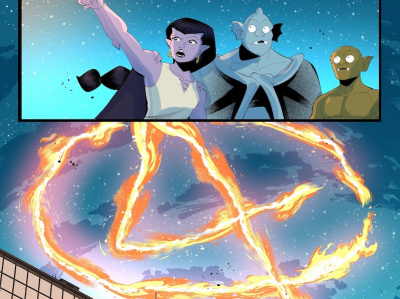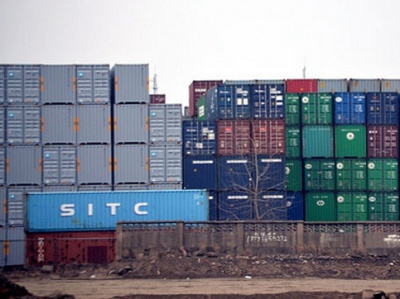We recently spent some time with Steve Morgan, Vice President of Trade and Direct Sales of Games Workshop
In Part 1 of this three part interview, we talk about that new direction and how Games Workshop is serving retailers now. In Part 2, we talk about how Games Workshop handles the conflicts between being a chain and e-commerce retailer of its own products and selling them through independent retailers as well. And in Part 3, we discuss the role of distributors, some final thoughts on retailer relations, and a brief discussion of the Games Workshop product line for the next few months.
We've been hearing that Games Workshop
It's a little odd for me to view it as a new direction; I'd like to think of it as something that I'd seen in the trade departments I'd worked in. I can't really say much about how the trade division was run in the
I believe Games Workshop has fantastic products and you can sell it in a professional and pleasant way. If we do that, I can't see much that can go wrong. Where we have burned bridges or have done things wrong in the past, we've brought ourselves away from offering fantastic customer service, and I think the message that was going out there was that everybody has to sell everything that Games Workshop does. I think one thing we've changed over the last 12 months that I feel very strongly about is people that stock Games Workshop should stock it to a level that is suitable for their own business. So if we've got somebody who wants to carry the whole range and they want to run demos and do events, that's fantastic, we've got a range that suits them. However, the vast majority of people who sell Games Workshop just want a fast-turning line that makes some profit and sits on their shelf and turns over month in, month out. We have to produce a range for them as well, and that's what I like to think we've done over the past 12 months.
You mentioned the four offices. Games Workshop had been in the process of opening regional offices, and now you've pulled back from that. Can you update us on where you are on that?
We went through a stage of experimenting with how it would work if we had regional managers. We had one based in Baltimore, one in LA, one in
Are you still using field reps, or is everything phone reps out of
A mixture of both, actually. We call them the account managers, and that's really exactly what they are. Each of the account managers has the responsibility for certain states. They spend most of their time dealing with those accounts over the telephone, but at least once a month they go out into the field and visit a portion of their accounts, because you have to have that relationship, you have to know what's going on in the field. For the last year the areas we've concentrated on are dealing with what we call our partnership stores. These stores have a wider range, they carry more inventory, and they run the events. They're the ones we've concentrated our business on. They're the ones who if something goes wrong with that account or the service or the range we're selling to them, it's going to be a far bigger issue, simply because the inventory they carry is that much greater. Our business for the last 12 months has been predominantly with those stores.
You mentioned that when you were in the process of experimenting with the regional approach, that support had been primarily focused on the retail chain. Is that still a function of your area, or is that a separate department?
That's a separate department. I sit on the executive board of the
Click here for Part 2.







